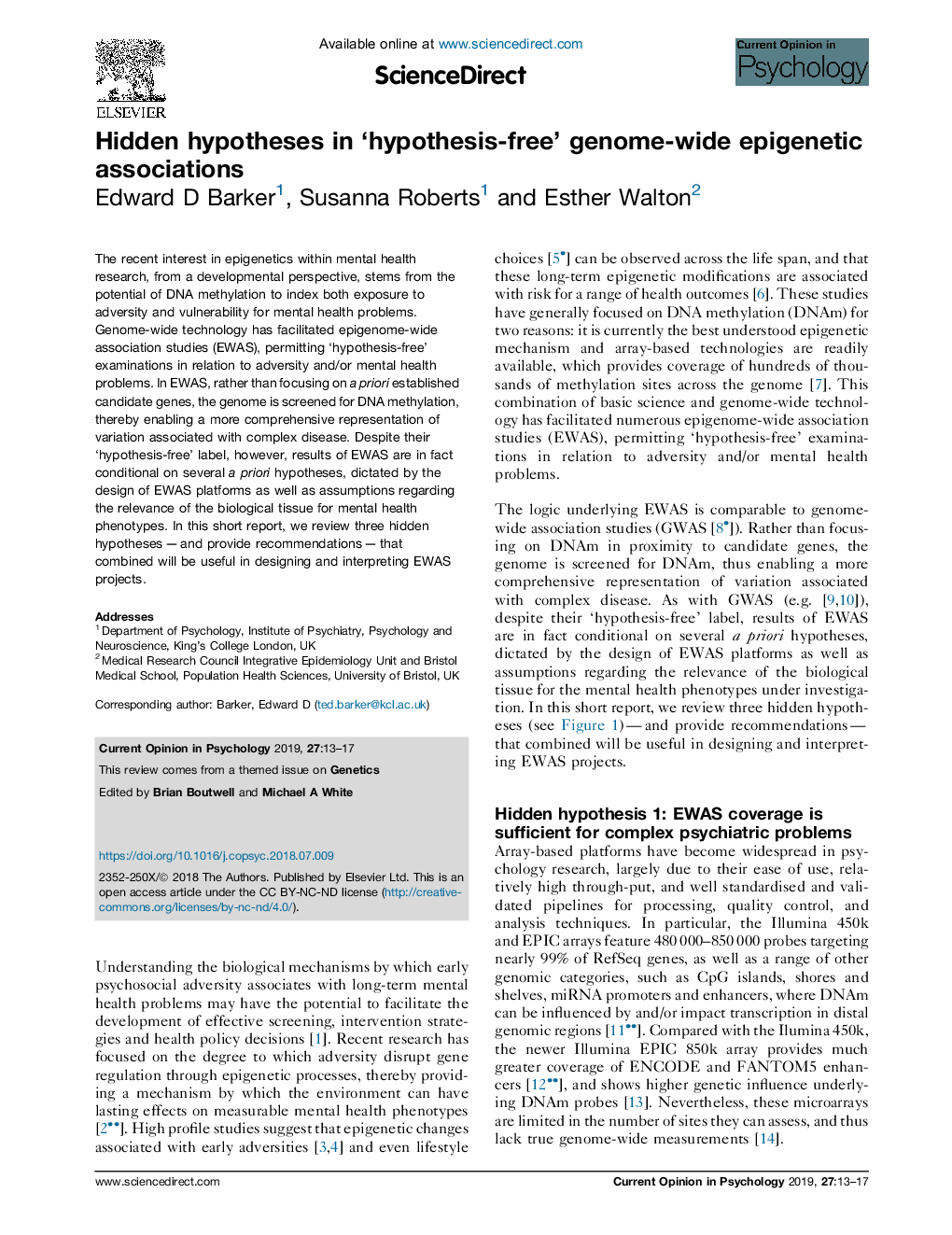| Article ID | Journal | Published Year | Pages | File Type |
|---|---|---|---|---|
| 7239703 | Current Opinion in Psychology | 2019 | 5 Pages |
Abstract
The recent interest in epigenetics within mental health research, from a developmental perspective, stems from the potential of DNA methylation to index both exposure to adversity and vulnerability for mental health problems. Genome-wide technology has facilitated epigenome-wide association studies (EWAS), permitting 'hypothesis-free' examinations in relation to adversity and/or mental health problems. In EWAS, rather than focusing on a priori established candidate genes, the genome is screened for DNA methylation, thereby enabling a more comprehensive representation of variation associated with complex disease. Despite their 'hypothesis-free' label, however, results of EWAS are in fact conditional on several a priori hypotheses, dictated by the design of EWAS platforms as well as assumptions regarding the relevance of the biological tissue for mental health phenotypes. In this short report, we review three hidden hypothesesâ-âand provide recommendationsâ-âthat combined will be useful in designing and interpreting EWAS projects.
Related Topics
Social Sciences and Humanities
Psychology
Applied Psychology
Authors
Edward D Barker, Susanna Roberts, Esther Walton,
